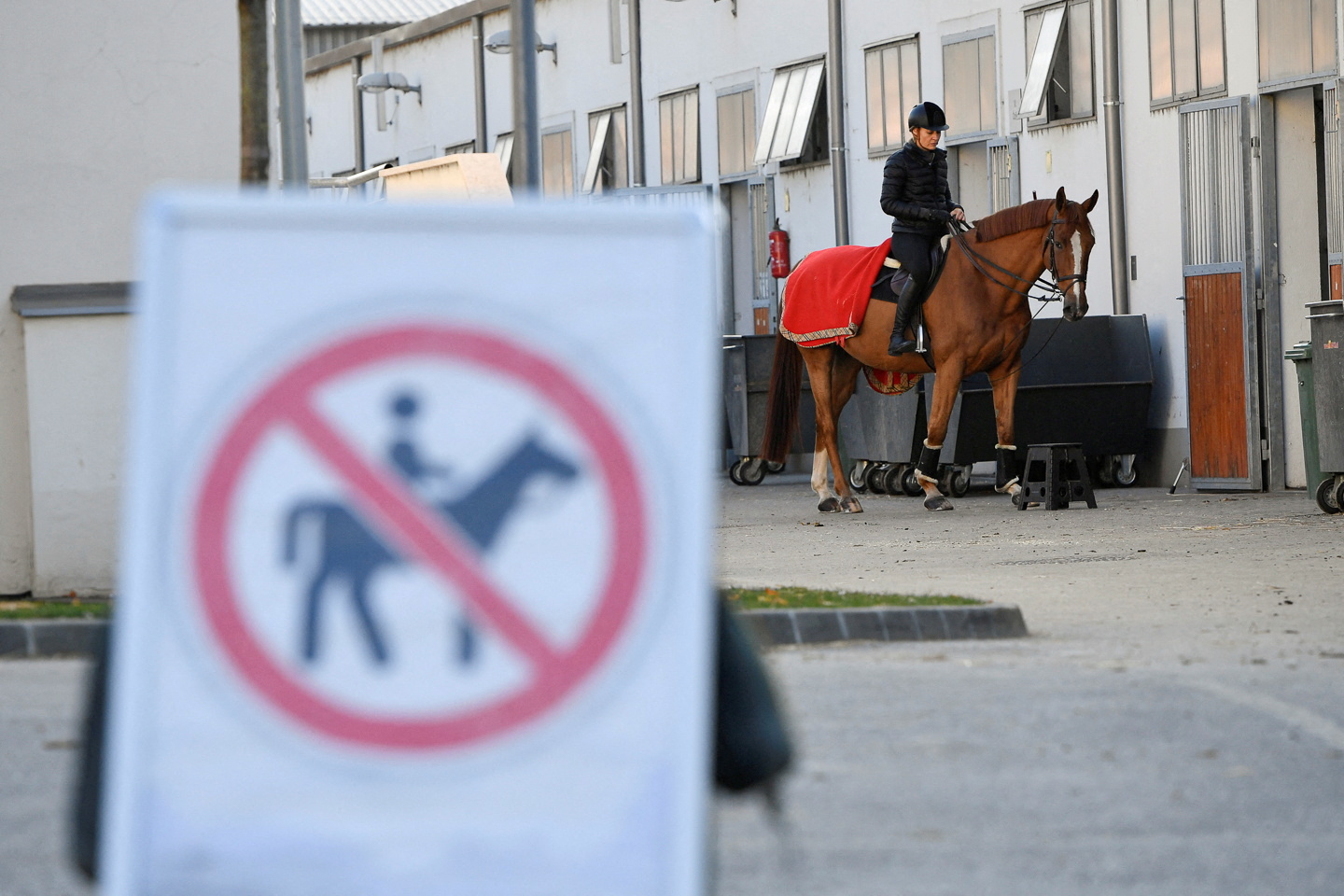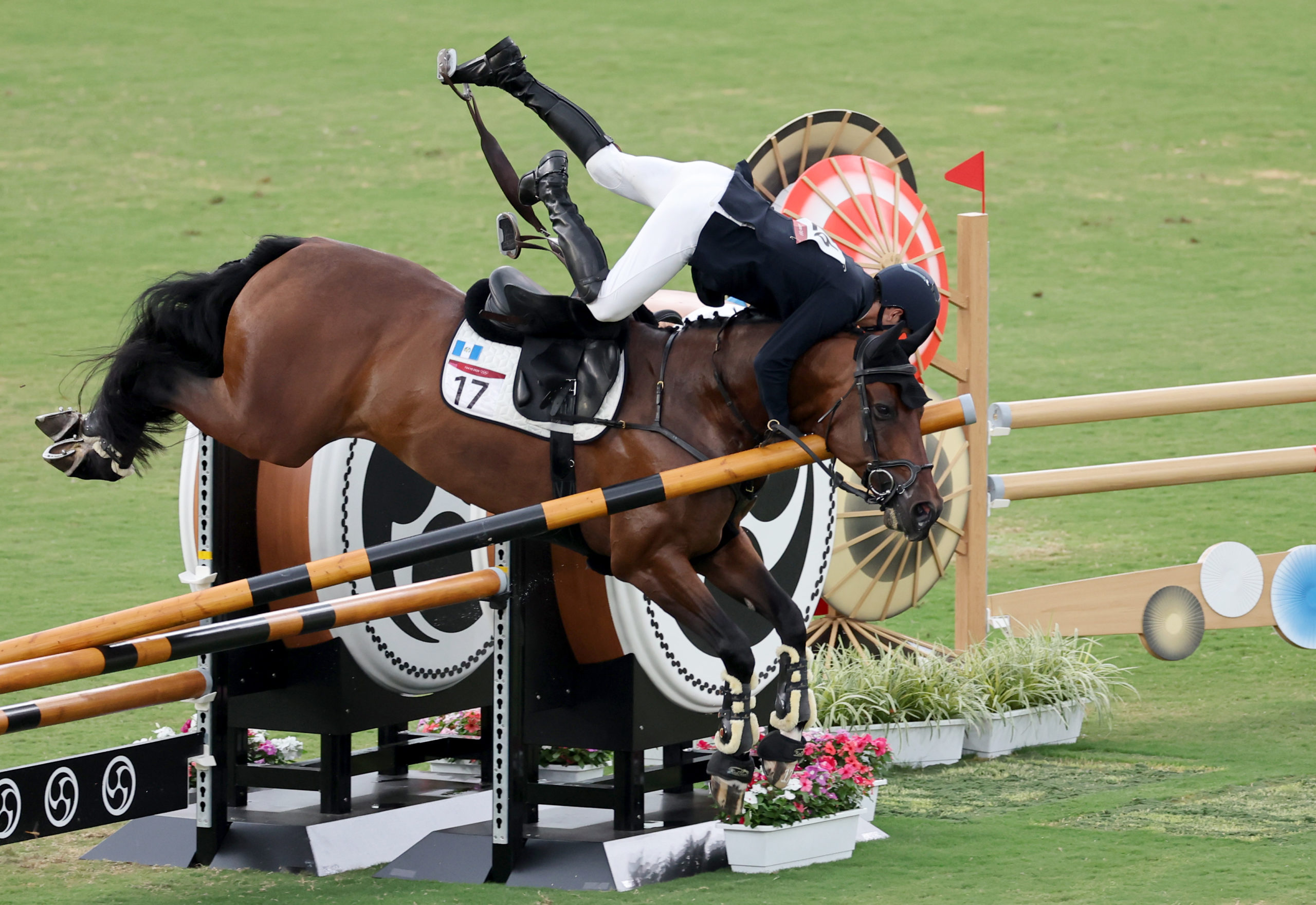Obstacle racing to be tested as equestrian replacement in modern pentathlon

FILE PHOTO: A rider with her horse are seen next to a no riding zone sign during a news conference about keeping horse riding in the modern pentathlon program in Budapest, Hungary, November 12, 2021. REUTERS / Marton Monus/File Photo
Modern pentathlon’s governing body (UIPM) said it has selected two variations of obstacle racing for testing from more than 60 options as it looks to replace the equestrian element in the sport from the 2028 Los Angeles Olympics.
The UIPM had said in November it would determine a suitable replacement for equestrianism through a consultation process.
Article continues after this advertisementThat decision came after German coach Kim Raisner struck a horse at last year’s Tokyo Games when it refused to jump a fence, which led to widespread criticism of the sport.
“The UIPM executive board decided to test the combination of the obstacle discipline alongside fencing, swimming and the laser run,” the governing body said in a statement.
“Testing will begin immediately after the 2022 Pentathlon World Cup Final in Ankara in late June. Following comprehensive testing, the final decision will be taken by the UIPM Congress.”
Article continues after this advertisementObstacle is a sport consisting of disciplines where athletes run and/or overcome obstacles in timed competitions.
Disciplines include Ninja Competitions, Obstacle Course Racing and Adventure Racing with multiple event formats and distances ranging from 50 meters to hundreds of kilometres.
The sport’s governing body World Obstacle says Ninja TV Show competitions have around 1 billion viewers worldwide.

FILE–Charles Fernandez of Guatemala falls from his horse durin the modern pentathlon event in the Tokyo Olympics. REUTERS/Carlos Barria
Adventure Racing has been televised globally since 1989 and it is estimated that more than 300 million people have watched the Eco-Challenge expedition race since 1995.
UIPM plans to provide more details about formats it will test and the rules in the coming weeks.
Modern pentathlon has been an Olympic sport since 1912 and features five events: fencing, swimming, equestrian show jumping, pistol shooting and cross-country running.
Pentathlon United has opposed the move to remove equestrianism, and its representatives wrote to International Olympic Committee President Thomas Bach on Sunday asking him to intervene, saying the UIPM’s consultation process had been “illusory at best.”
However, the UIPM said athletes had played a central role in the process and Athletes Committee chairman Yasser Hefny, who led a focus group of 26 competitors from 22 nations, said that they were on the verge of a landmark decision.
“I believe the New 5th Discipline Working Group has been thorough in evaluating the options put forward by our community, using internal and external expertise to good effect,” said Hefny.
“While we still have specifics to finalise, we have a new and exceptional opportunity to grow and give visibility to our sport for the benefit of many generations to come, and that’s very exciting.”